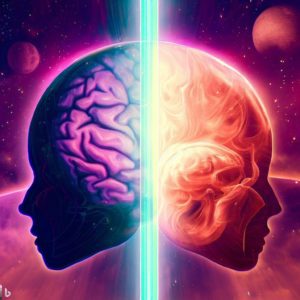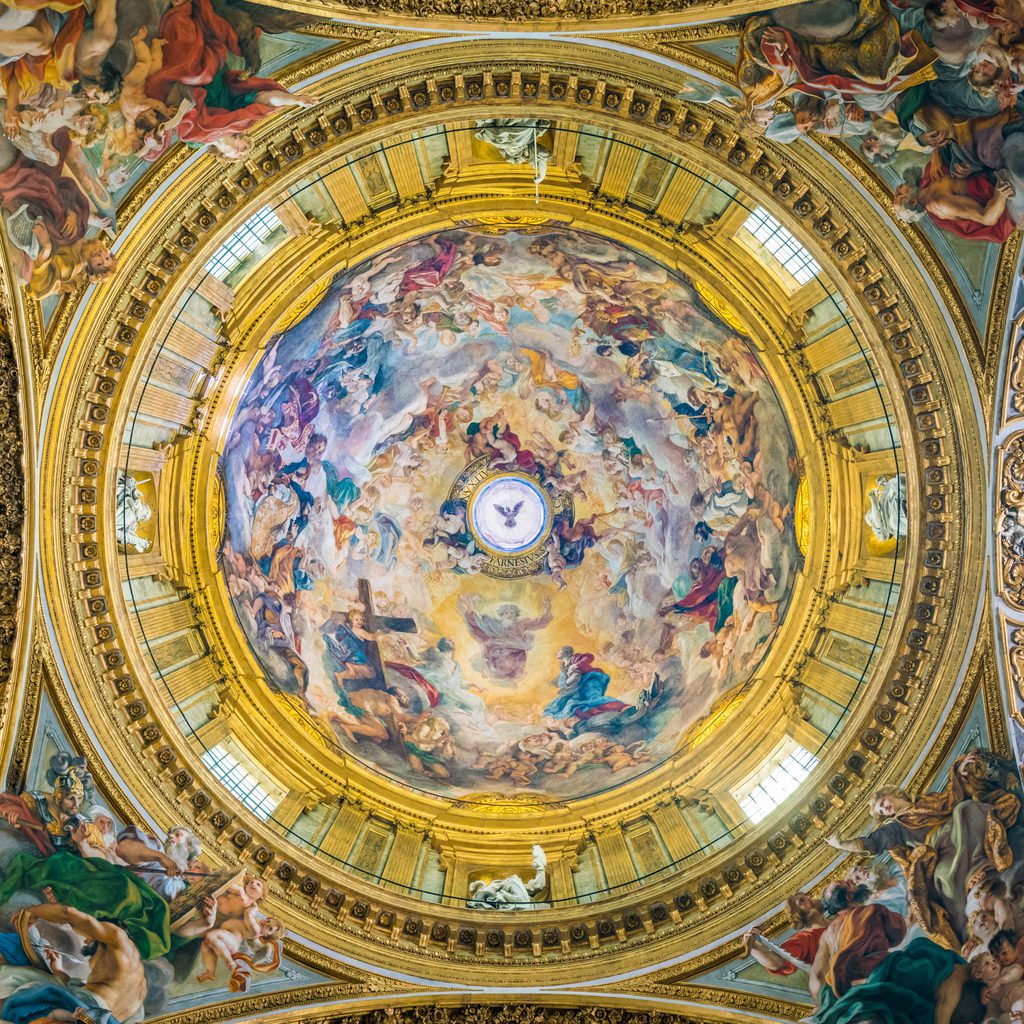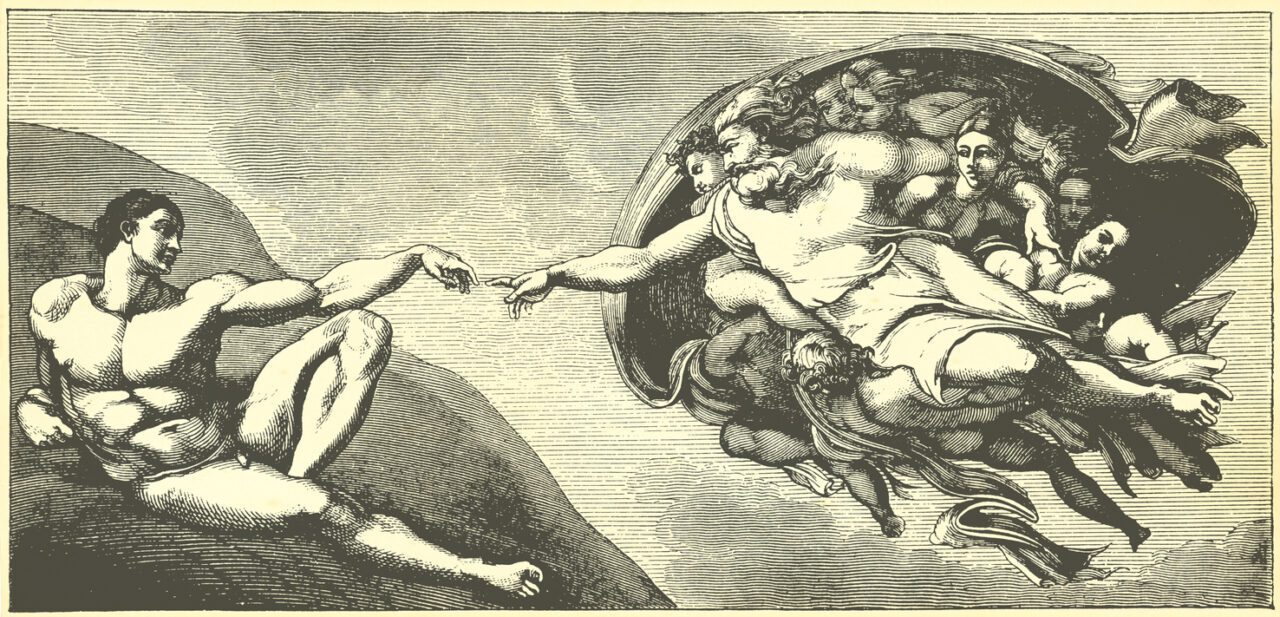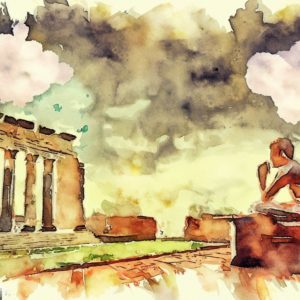0:00:23
Welcome back to the Logos of Experience and Truth podcast where I work to unlock the mysteries of the Beatific Vision.
What I want to do in this episode is finish talking about the why in the title, the last words in the name of this podcast, experience and truth. Why is experience so important in defining one’s truth?
It’s obviously very apparent if you’ve listened to any of the previous podcasts, that I am deriving the majority of my information from my own experience. Now that information has been refined, I’ve considered, thought about, meditated, written everything that I possibly can to understand the experiences that I’ve had. Comparing them to the experiences other persons have had, written down, all the experiences in the various religious texts, mystical texts, esoteric texts. I’ve gone into everything that I possibly can so that I can understand what it is that I experienced and explain it better.
But no matter how many episodes I make, no matter how hard I try, no matter how much I write, everything that I attempt, just as any other mystic that has had some type of religious vision will attest to, it is impossible to explain it to you listening in a way that will . . . I don’t want to say convince you of its validity. I mean, obviously, if you’ve listened to any of these episodes, you know that I’m not just making up whatever it is I experienced. Maybe you have your own idea about what was really going on with what I experienced, some type of drug use, which I’ve been very clear on explaining that my first experience was a drug use and I’ve worked to try and differentiate the drug experience versus what can traditionally be called the philosophic experience of religious mystical vision through the mysteries. Since I’ve experienced both, I feel I’ve been able to at least compare the two of what is and is not the same and what is and is not different, but it’s still incredibly difficult to convey that experience and what that experience does to a person. And I’m just talking about the mystical experience or a mystical vision. Right? But, I mean, this applies to anything. If you’ve been to a waterfall and you try and explain what going to a waterfall is like to somebody that has not been to a waterfall, there’s only so much you’re going to be able to explain to that person about the waterfall. They’re not going to fully grasp it if they have never been to a waterfall, especially a big one. I remember I had the same thing . . . I had been to little waterfalls in the past and then when I finally went to Yosemite, it was like an eye opener, just like, whoa. This is a different kind of experience versus the little waterfall that was an hour away from me.
There’s just something different when you actually experience something. That to me is what true religion is, what true religious practices are all about.
0:04:04
The experience and experiencing. It’s this, for me, in my mind, much more so than reading or teaching or going to lectures or lessons or things of that nature, it is the experience that cleaves itself into the mind and changes it.
We were talking in the previous episode or in a previous episode about how does one change the mind? What is the method by which one can change and alter their own mind at will if they so desire? The ancient method of doing this, the religious spiritual method of doing this, hopefully, I’ve convinced you by now is what are called the mysteries. And in the church is what are called the sacraments, although there are still the mysteries of meditation and contemplative prayer and those types of things as well.
0:05:04
Now, obviously, experience can come in different ways. Right? I’m not saying that the only type of spiritual religious experience is having some type of a mystical vision. It can come in a greater, lesser magnitude. But that having some type of life or mind-altering experience should be the goal of any practitioner of any religion. Going to church itself is an experience. I’m not saying that that’s not what it is. It actually is. Especially if you are cognizant of the various things that are occurring when you are in church. There’s something very tactile to sitting in the pews, to kneeling, to standing up, to kneeling back down. It does something to the brain.
I listened to a course on the Great Courses called “The Spiritual Brain,” and it said that they were able to track this through neurological readings, the habitual process of any of these spiritual practices, they carve neural networks into the brain. It’s one of the reasons why I disagree with those that say they’re spiritual but not religious. I’m not saying that they’re not entitled to their opinion, but for me, they’re missing out on these potential experiences that literally enhance the brain.
And it’s also why pilgrimage, for instance, is so life altering because it brings somebody into that experience.
0:06:37
I had a very young and very quickly becoming Americanized Muslim girl as an employee a couple of years ago. Though she accepted the cultural and family aspects to her religion, she was still, you know, questioning its importance or maybe not so much questioning, maybe a better word would be she was annoyed by its constant presence in her American experience of life. Maybe that’s a better way of explaining it because she was still very devout to it. She just . . . there was this kind of head butting of the Muslim culture versus the American culture. And then she went on the Hajj to Mecca. And instant change, instant difference like night and day to how she appreciated and perceived her self identity among and within her culture, her religion, and her family.
0:07:28
The point is that experience becomes your truth. It defines your truth. It’s why, for instance, victimhood is so difficult to be free from since whatever that negative experience that may have shattered us was, it becomes ingrained in our very being as our truth and we cling to it even if it’s destroying our entire well-being. And then everything outside of ourselves reflects this victimhood of whatever it is that we suffered in our youth, continuing to influence how we perceive and see reality.
In my “Vision Explained Deeper,” work on my website, logosofexperienceandtruth.com, I give many reasons for why I believe the UFO experience is the same as the mystical experience, it’s just with a different theme, different characters, different idea—sci-fi—idea behind it. But whatever it is that those individuals that have had this specific UFO experience have experienced, that has become their truth, you know, and I’m not trying to say that their truth isn’t their truth just that experience gives truth and truth can also support that experience.
0:08:50
I read something once that attempted to quantify the effects of a near death experience. I apologize. It’s been a couple of years since I was looking into some of this stuff. I have no idea where I read this study. If not, I’d tell you where it was. All I’m trying to say is I didn’t come up with this on my own. If you’ve listened to my other episodes where I get in-depth about my own near death experience you can understand why eventually I looked into this and somewhere I explained why I didn’t even bother looking into any of these types things for ten, fifteen years after my experience because I didn’t want to be influenced by any of these other metrics or studies because I wanted to know what it was I experienced before I went out and started trying to learn in more common place methods and more quantifiable methods of what this experience was.
0:09:46
But the experience is very rare. And actually, until I looked into it, even rarer are those that actually remember seeing anything. So not everybody that has a near death experience . . . and if you don’t know what a near death experience, it’s where somebody has potentially died or died in some way. Either they’ve drowned or they’ve died in a car accident. They’re in the hospital, they’re declared dead and then they’re revived, and, in that process, they have seen and experienced something.
The name of near death is kind of strange because did you die? Did you not die? I think they call it near death just because, well, you didn’t die, so you can’t be dead. And I think there’s something in there in the cross examination of this of, “Well, if you were brought back than you actually didn’t die. You just were very clinging onto life in a manner in which scientific technology can’t detect in that moment,” or something to that order.
But not everybody sees something that has this type of an experience. And I found that very interesting because I realized when I read that, I was like, “Oh, wow. So, there’s actually many people that don’t experience something.” So, it gave me even more to think about, well what constitutes if somebody does or doesn’t see something in that near death experience?
0:11:09
I’ve been honest in my different podcast episodes that I can’t say whether I was or wasn’t dead in my experience since it was entirely through my own viewpoint. There was nobody else around me to say you died or nobody else to call the ambulance, right, or something, or take me to the hospital. So, I don’t have any other data to support whether I was or wasn’t dead. I just know that when I did examine the experience that I had, other people that had had near death experiences explain the exact same thing. The tunnel, the light, all that kind of stuff.
But the main thing about it, those that did see something . . . so again, rare to have the experience, even rarer those that actually remember seeing anything. But those that did see and experience something almost unanimously described the experience as life altering. Their life from prior to that experience to after the experience was different now. Forever. It was never going to be the same as it was before because they had seen and experienced something that was beyond. Beyond the normal realm. Again, I’m not trying to say that all experience should try to be at that level.
0:12:30
But in the mysteries, especially if we’re in late antiquity . . . actually, I don’t know if that’s the way you’re supposed to say it. So, in antiquity, five hundred BC through three hundred AD or so. So, when there was much more activity surrounding these mysteries and knowledge about them and that’s basically where we have any books from that time period, any writings, anything about these centers where these mysteries occurred.
0:12:59
But the overall goal was some type of experience. So, for instance, in the temples of, I can’t say the name correctly, Asclepius, I believe is the way to say the name. So, he was the god of medicine. And when a practitioner would go to the temple for instance to receive a healing, they had to go in, they had to perform some different rites of that nature, but then they were told to go to sleep in the temple. There’s a specific spot where they were placed, and they had to try their hardest to remember their dreams. I think in one report, they couldn’t leave until they had the dream. But basically, they would have some kind of a dream that would confirm the healing. That was the experience. So, it could be a dream . . . vision, dream in the ancient world were kind of the same thing as it pertained to religious, spiritual, otherworldly, supernatural, how we would term it experience. They didn’t think every dream was knowledge of the gods or something like that. They were able to identify and determine one dream from the next, but that was a valid type of experience, a valid type of spiritual experience as well.
0:14:24
What is it about experiencing that is so important to define our truth? As I’ve explained, it simply does something to the brain. It does something to your personality. It’s more than just . . . I’m reading a text on the history of meditation or the mysteries or something like that. But once you actually start doing it, it’s like something else happens, some light switch occurs in the brain and it’s the same here when it comes to the mysteries.
Hopefully, that’s the fullest reason of why I have called this podcast, the Logos of Experience and Truth. Hopefully, you can see the difference. I’m not just talking teachings. I am also talking about experience.
And I will leave you with that. Until next time.





